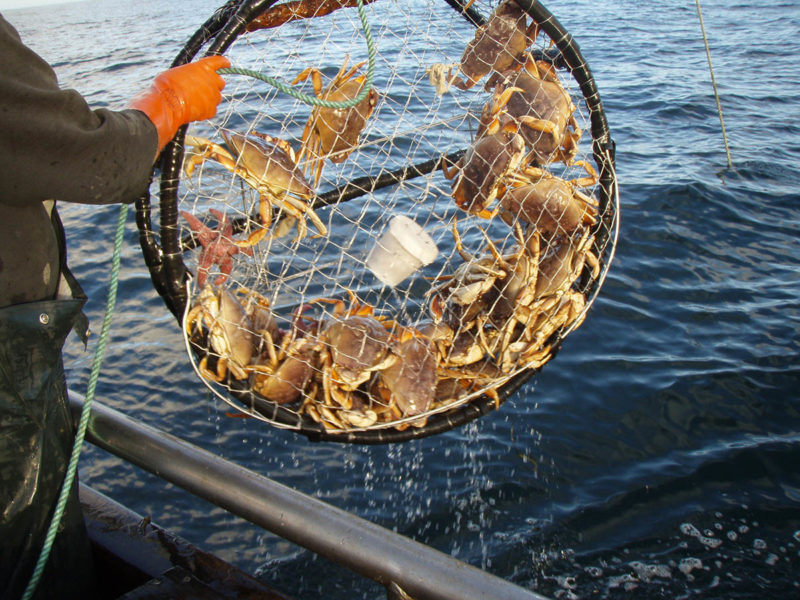The news was pretty bleak last week for Dungeness crabs as well as the people who catch them and enjoy them.
Dungeness crabs. California Department of Fish and Wildlife photo.A pair of new studies highlighted trouble ahead for the crustacean, related to changing oceans.
Research from Oregon State University focused on the increasing prevalence of domoic acid and its effect on a variety of species, including Dungies. A University of Washington researcher zeroed in on the effects of ocean acidification on the West Coast Dungeness fishery.
Kristin Marshall, lead author of the University of Washington study published in the journal Global Change Biology, predicted a potentially significant downturn for Dungeness fisheries over the next 50 years as the pH of seawater declines, leading to a notable increase in acidity.
The research is unique because it sought to model the effects of acidification across an entire ecosystem and estimate the impact on commercial fisheries. Though earlier studies have shown that Dungeness larvae is vulnerable to acidification, the declines forecasted in this study were largely attributed to dwindling prey — clams and other bottom-dwelling invertebrates also harmed by acidification.
Morgaine McKibben, the lead author of the Oregon State University study considered the neurotoxin domoic acid, high levels of which caused the cancellation of the 2015-16 season in California and an eventual disaster declaration for affected fishermen.
“When water’s unusually warm off our coast, it’s because the circulation and patterns in the atmosphere has changed, bringing warm water from elsewhere — and this is happening at the same time that we also see high domoic acid in shellfish. It has a very strong mechanistic connection,” McKibben told Scientific American.
McKibben studied more than 20 years of data on domoic acid levels, finding a strong correlation between rising water temperatures and increasing levels of the neurotoxin that can sicken humans and other species. Her findings were published in the Proceedings of the National Academy of Sciences.
"The most important takeaway from the study is that it's telling us about changes in the food web based on long-term observations of changes in the oceans. It's a very zoomed out view of how the food web responds to natural changes to ocean conditions. That's very important when you talk about resource management," McKibben told NPR.
With the news that the earth set a temperature record for the third straight year in 2016 and domoic acid blooms and acidification both tied to warming, the future of the West Coast’s valuable Dungeness fishery appears endangered.







